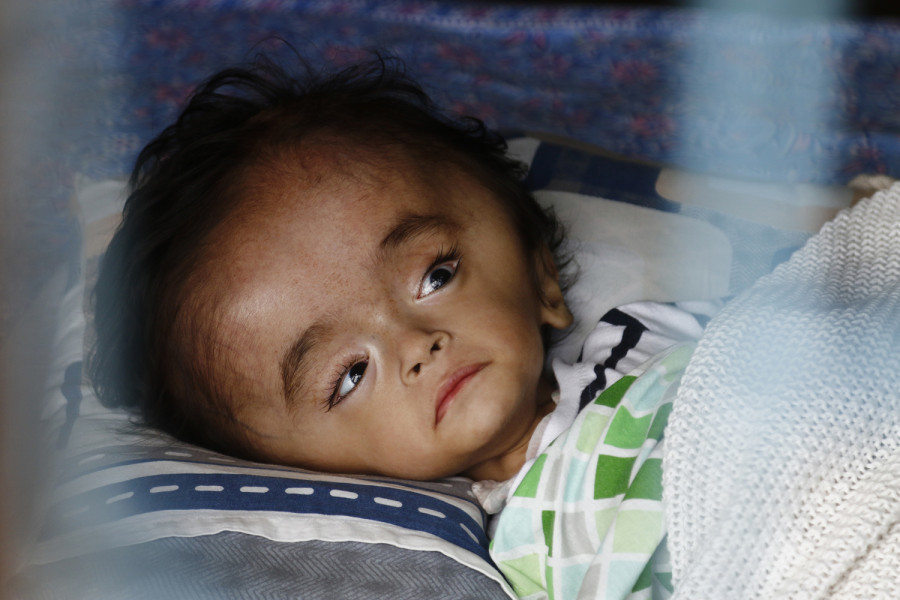Valley
Medical council’s ruling on Grande Hospital negligence offers nothing, infant’s father says
The council has directed the hospital to put one doctor on a probation and issued a warning to another.
Arjun Poudel
Sanjeev Neupane, who had demanded an investigation into medical negligence at Grande International Hospital during the treatment of his son Rihan Neupane, has called Nepal Medical Council’s decision too little too late, saying the body failed to hold the doctors involved in negligence to account.
The national regulatory body of medical practitioners two weeks ago sent a letter to the hospital, asking it to put Dr Dipika Dhakal, a paediatrician, under probation and warned Amit Thapa, the neurosurgeon who operated on Rihan, not to repeat a similar mistake in the future, according to an official at the medical council who spoke on condition of anonymity.
Read: A private hospital’s negligence has an infant on the verge of death
“I am appalled by the medical council’s decision; it’s too little too late and it actually says nothing,” Neupane told the Post. “The probe carried out by the regulatory body found sheer negligence on the part of doctors and hospital management. But there is no action recommended.”
According to Neupane, the council even refused to give him a copy of the council’s decision.
“They rather asked me to go to court,” said Neupane. “They said they would take action if the doctors repeat the mistake, which squarely means action will be initiated only after they are found guilty of negligence while treating other patients which can have dire consequences on people.”
Rihan was born to Ekata Ghimire and Sanjeev Neupane on June 26, 2018, at Grande International Hospital in Dhapasi. Rihan was born slightly early, at 36 weeks and a day, weighing 2.85 kgs.
From the very moment he was born, Rihan suffered from a series of health complications, which, according to Neupane, were exacerbated or mistreated by a team of doctors at Grande.
In nearly a year at the hospital, Ekata and Sanjeev watched helplessly as the hospital committed malpractice after malpractice, often due to simple oversight and, at other times, carelessness. In the end, their newborn would end up the way he is today—catatonic.
After the hospital refused to admit there was negligence on its part, Neupane had lodged a complaint on May 22 this year at the Nepal Medical Council.
Dr Ankur Shah, the officiating registrar at the council, confirmed to the Post that neither the doctors guilty of negligence have been suspended nor have they been removed from the council’s list.
"We have warned a doctor and the hospital management, and sent a doctor in probation (to work under another doctor's supervision) for a week," Shah told the Post.
The council, which had formed an expert panel to probe the alleged medical negligence by the hospital and sought clarification on why it should not face action for negligence during the treatment of Rihan, said that the decision to warn the doctors and hospital management was endorsed by a special committee, which was later endorsed by its full house meeting.
As far as compensation is concerned, it’s up to the court to decide if the complainant moves the court, according to Shah.
"We can furnish relevant documents of our investigation if the court orders so,” Shah told the Post.
The probe team formed by the council found that administering a high dose of paracetamol to the baby during treatment was a grave mistake. The council also said it found misunderstandings between the radiologists and treating neurosurgeons regarding the size of ventricles and cyst, and that the findings were not clearly explained to the family members.
The probe team also found a lack of uniformity among the doctors involved in the treatment, which, according to the council, shows that doctors failed in counselling, briefing and coordinating.
Radiologists at the hospital had recommended CT and MRI tests after conducting an ultrasound of the baby’s brain, but the hospital delayed the test.
"An MRI test was needed when there was no improvement in the patient while receiving treatment," states the report. "But the test was not carried out on time. Due to which the complication could not be diagnosed on time, which is the main weakness [on the part of the hospital] in this case."
Neupane said that his intention behind approaching the medical council was to make the doctors more responsible and accountable.
“We just wanted health care professionals to be more responsible so that no other person has to go through the ordeal that we have been through,” said Neupane. “But the outcome was next to nothing. We will now seek legal remedies.”
Neuapne said his son Rihan’s health is deteriorating.




 9.7°C Kathmandu
9.7°C Kathmandu














